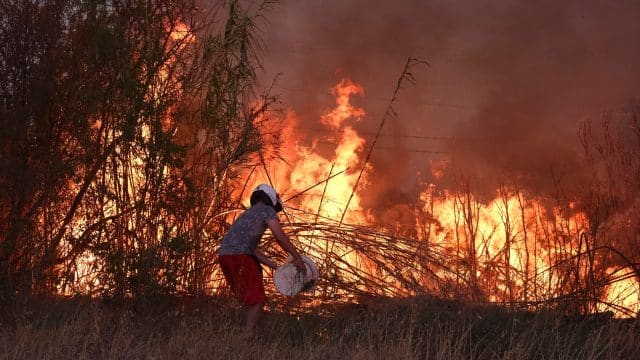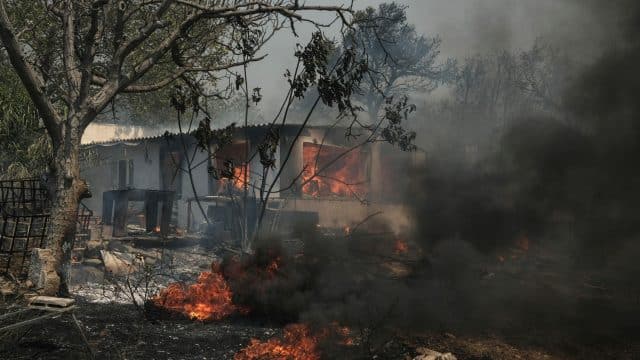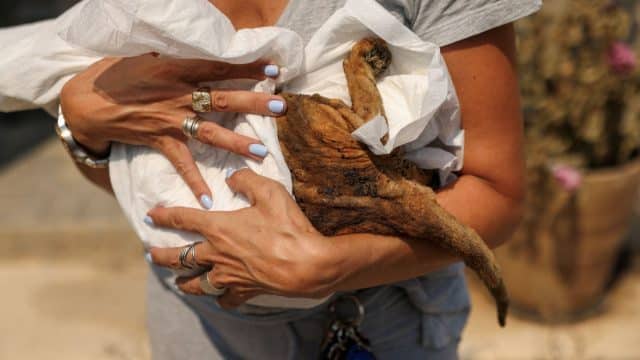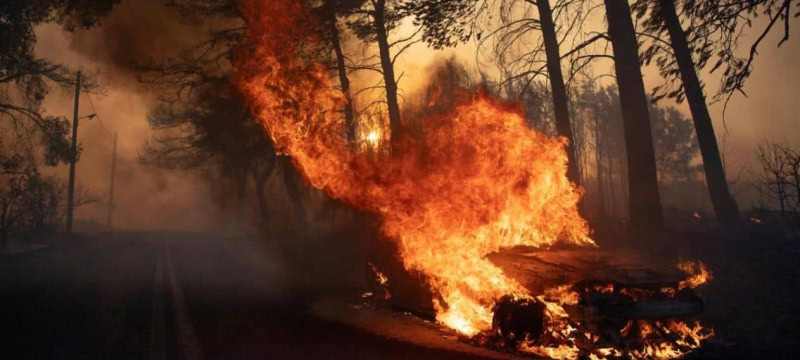An “exceptionally dangerous” Wildfire has raged uncontrollably in Athens, with flames soaring 25 meters (80ft) high.
Fueled by strong winds and extremely dry conditions, the massive blaze has forced residents in the northern suburbs of the Greek capital to evacuate their homes.
Read more: Residents Flee Greece Wildfires that Persist Despite “Superhuman” Efforts to Control them
Thousands of people, including those in the historic town of Marathon, have fled after numerous evacuation orders, as smoke and ash blanketed the city center.

Residents have reported difficulty breathing, describing the smoke as “suffocating.”
Approximately 700 firefighters are battling the fire, which began on Sunday about 20 miles from Athens.
By Monday afternoon, the flames had spread to a suburb around nine miles from the city center, engulfing an area of about 20 miles.
Over 190 vehicles, along with 17 water-dropping planes and 16 helicopters, have been deployed for aerial support in the wildfire.
Three hospitals, including a children’s hospital, two monasteries, and a children’s home were evacuated.
Police reported that 380 officers assisted in evacuations, helping more than 250 people escape the path of the flames.
Two firefighters were injured—one treated for light burns and the other for breathing issues—while 13 civilians suffered from breathing difficulties.

Climate crisis and civil protection minister Vassilis Kikilias described the wildfire as “exceptionally dangerous,” saying they have been battling it for over 20 hours under severe conditions.
Kikilias noted that the fire is burning on two major fronts, including difficult-to-reach areas on a mountain northeast of Athens, with half the country currently under “red alert” for wildfire risk.
Spyros Gorilas, who attempted to protect his home from the flames by hosing it down, described the conditions: “The wind shifted directions, and the smoke was suffocating. Visibility was almost zero; you could only hear the helicopter dropping water but couldn’t see it.”
The Olympic stadium and other venues in northern Athens were opened for those fleeing the fires, and three major hospitals were placed on standby.

European neighbors have extended their support, with France offering a helicopter, 180 civil security personnel, and 55 fire engines, while Italy has provided two water-dropping planes. The Czech Republic, Spain, and Turkey have also pledged assistance.
June and July were the hottest months ever recorded in Greece, with the summer’s repeated heatwaves making pine forests highly flammable. Wildfires have become more frequent in Greece due to increasingly hot, dry summers linked to climate change.
Last year, over 8,000 fires were reported, and hundreds have occurred since May, following the country’s warmest winter on record.









